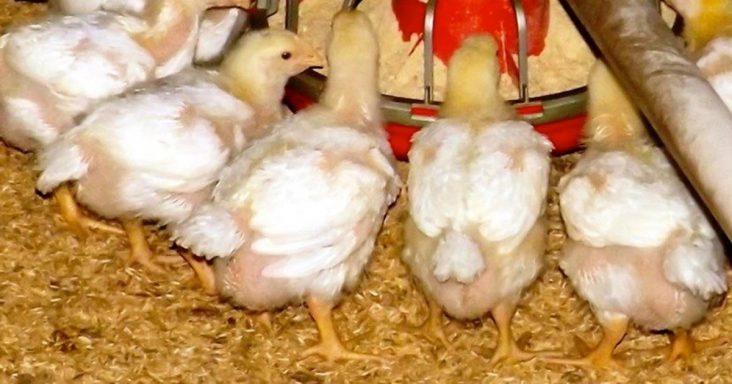Case of avian influenza confirmed in Arkansas Delta
by December 1, 2022 2:58 pm 1,661 views

One of Arkansas’ most profitable agriculture sectors is being threatened by disease. Testing has confirmed a case of avian influenza in a backyard flock in Arkansas County that had shown increased mortality over the course of several days.
This is the third case of avian influenza in Arkansas this year. Earlier this year, the state Agriculture Department confirmed cases of avian influenza on a poultry farm in Madison County and on a farm in Pope County.
“We will continue to work with poultry growers, the industry, and our laboratory partners to protect against the spread of avian influenza,” said Arkansas Secretary of Agriculture Wes Ward. “Arkansas poultry is safe to eat and consumers can be confident in the safety of their food.”
The Natural State ranks second in broiler production with 7.42 billion pounds produced with a value of $3.6 billion, according to the U.S. Department of Agriculture. The broiler industry generated $28.3 billion in the U.S. during 2019.
“The Arkansas Department of Agriculture is urging poultry owners to increase biosecurity measures on their operations in response to several reports of highly pathogenic avian influenza (HPAI) in wild birds along the Mississippi Flyway,” said Patrick Fisk, Livestock and Poultry Division Director.
Avian influenza is an airborne respiratory virus that spreads easily among chickens through nasal and eye secretions as well as manure. The virus can be spread in various ways from flock to flock, including by wild birds, through contact with infected poultry, by equipment, and on the clothing and shoes of caretakers. There is no public health concern, and avian influenza does not affect poultry meat or egg products, which remain safe to eat.
There was a major outbreak of influenza in the U.S. poultry sector in late 2014 through the first six months of 2015, according to the USDA. An estimated 50 million chickens and turkeys died from avian influenza. It about 12% of the table egg laying population and 8% of the turkey meat population.
The federal government and farmers spent billions of dollars tackling the problem. Broiler exports dropped by 26% to $1.1 billion in 2015, the USDA reported. Egg export income dropped 14% ($41 million), while turkey export income fell 23% ($177 million).
To mitigate the disease risk from contact with the birds or their droppings, the Livestock and Poultry Division strongly recommends taking the following steps for the next 30 days, especially within the Delta area:
- Keep your birds indoors or covered to prevent exposure to wild or migratory birds.
- Restrict access to any source of water that may have been contaminated by wild birds.
- Implement strict biosecurity methods to prevent exposure to wild waterfowl or their droppings.
All poultry flock owners are encouraged to follow the strictest biosecurity on their farms to prevent the spread of the disease. Those steps include:
- Limit, monitor, and record any movement of people, vehicles, or animals on or off your farm.
- Permit only essential workers and vehicles to enter the farm to limit the chances of bringing the virus from an outside source.
- Avoid visiting other poultry farms and any unnecessary travel off the farm.
- Disinfect equipment, vehicles, footwear, and other items that come into contact with flocks.
- Keep your flock away from wild or migratory birds, especially waterfowl.
- Isolate any ill animals and contact your veterinarian.
